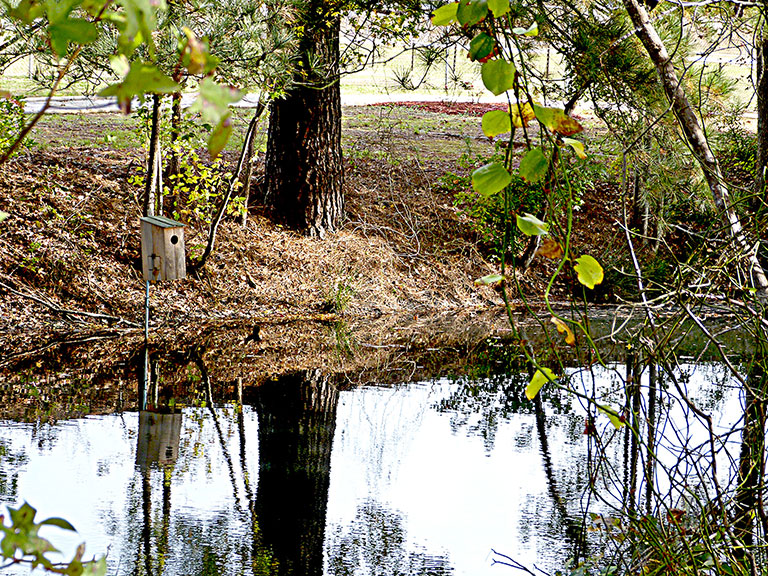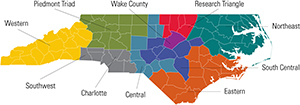WILSON, N.C. — The 350-acre tract of land next to Bridgestone Americas Tire Operations (BATO) Wilson, NC manufacturing facility might have been developed; the timber sold, the brush cleared, the animals living there scattered. Instead, BATO-Wilson did something wonderful and unexpected: it designated the land a wildlife habitat and refuge. The decision was made not only to save the flora and fauna in the area, but to give people in the community opportunities to learn about their native environment while enjoying hiking, camping and other activities that the habitat provides.
“Utilizing company-owned land as wildlife habitat is innovative, especially when the land is converted into a site that benefits the greater public and community,” says Irma Villegas, the facility’s Environmental Coordinator. Bridgestone has a long history of good corporate citizenship, traceable to its founder, who espoused serving society through superior quality.
“Serving society has always extended beyond our products,” Villegas emphasizes. “It includes our values and the manner in which we operate our businesses. We feel that a natural and sustainable environment is not a cost to be avoided, but a benefit to be embraced.”
The habitat has given the company opportunities to build partnerships within the community, too; while BATO-Wilson made the initial commitment of lands and funds to launch the project, groups like Boy Scouts and Girl Scouts, Boys and Girls Clubs, 4-H, homeschools and many others volunteer their time alongside employees to improve the habitat. New trails, shelters, observation points and solar power stations are just a few of the improvements that volunteers have made.
Bridgestone’s Freedom Habitat and Wildlife Refuge is a certified “Wildlife at Work” site, a designation granted by the Wildlife Habitat Council. Corporations seeking this certification must develop and maintain comprehensive management plans for their habitats. For its most recent recertification, Freedom’s species inventory needed updating. For help completing this task, Villegas reached out to NC State University Industrial Extension Service (IES), with whom BATO-Wilson had successfully collaborated on other sustainability initiatives, including ISO 50001 and Superior Energy Performance certifications.
 IES connected BATO-Wilson with a student studying Fisheries, Wildlife and Conservation Sciences at NC State University. Over the course of several months, the student traveled to Wilson weekly to update the species inventory and develop considerations for further improvement to biodiversity and habitat quality.
IES connected BATO-Wilson with a student studying Fisheries, Wildlife and Conservation Sciences at NC State University. Over the course of several months, the student traveled to Wilson weekly to update the species inventory and develop considerations for further improvement to biodiversity and habitat quality.
The resulting documentation showed that BATO’s management of the area was proving effective. “We learned that we have more species than we did in 2006, when we first completed the inventory,” says Villegas. She also was delighted to learn that good environmental stewardship had helped boost the habitat’s populationof eastern bluebirds.
As the habitat thrives, it continues to add to Bridgestone’s reputation as an world leader in successful, sustainable business practices.


